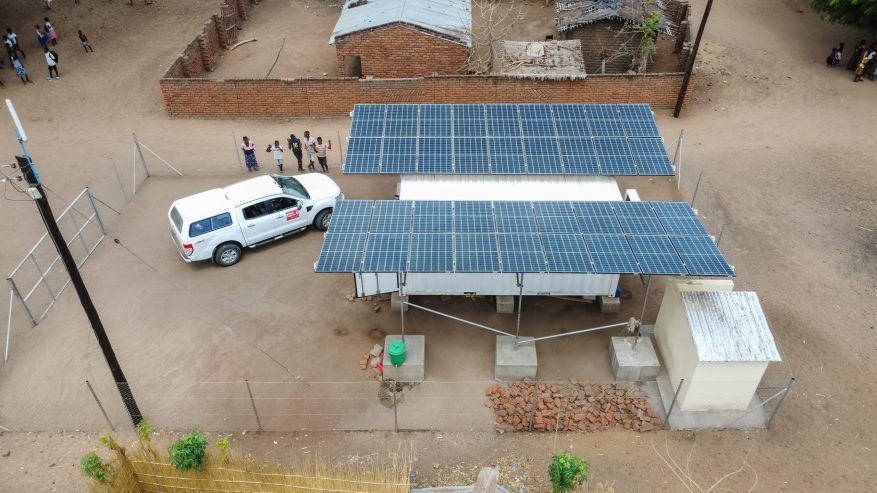Access to electricity is one of the greatest barriers to development and social mobility in Africa, especially in rural areas. 600 million Africans, or roughly 43% of the continent’s population, live without electricity.
Self Help Africa has installed Malawi’s first smart-metered, solar-powered mini-grids in a pilot project that has brought electricity to two villages in remote parts of the country. Over 500 people can now access the two “mini-grids” purchasing electricity, supplied directly to their households, through trained, village-based agents and smart-meters.
Almost half of these connections are powering a variety of businesses from grocery stores to metalwork shops. The benefits are also being felt by hundreds of children who now have access to light at home and at school, meaning they can do their homework in the evenings. Thanks to the energy connection, an educational charity, Turing Trust has provided computer tablets to students and teachers in the locality.
This work is supported by the Scottish Government’s Malawi Development Programme and is being conducted in partnership with the University of Strathclyde. Technical and economic data from the smart-meters as well as regular social impact surveys are analysed by the University to develop and refine the mini-grids business model.
Self Help Africa has established its own social enterprise to run the mini-grids. While the current system is maintained with grant funding, financial modelling shows that only 10 of these mini-grids are required for the social enterprise to sustainably operate them through revenue from the sale of electricity only. We are pursuing opportunities to expand the mini-grid portfolio and have identified sites for the next systems.
Renewable energy sources like solar will be vital to get more of Africa on the grid, especially with populations projected to double by 2050. The connection between clean energy, economic development and environmental sustainability is crucial to address issues faced by vulnerable communities in Malawi and across the world.

